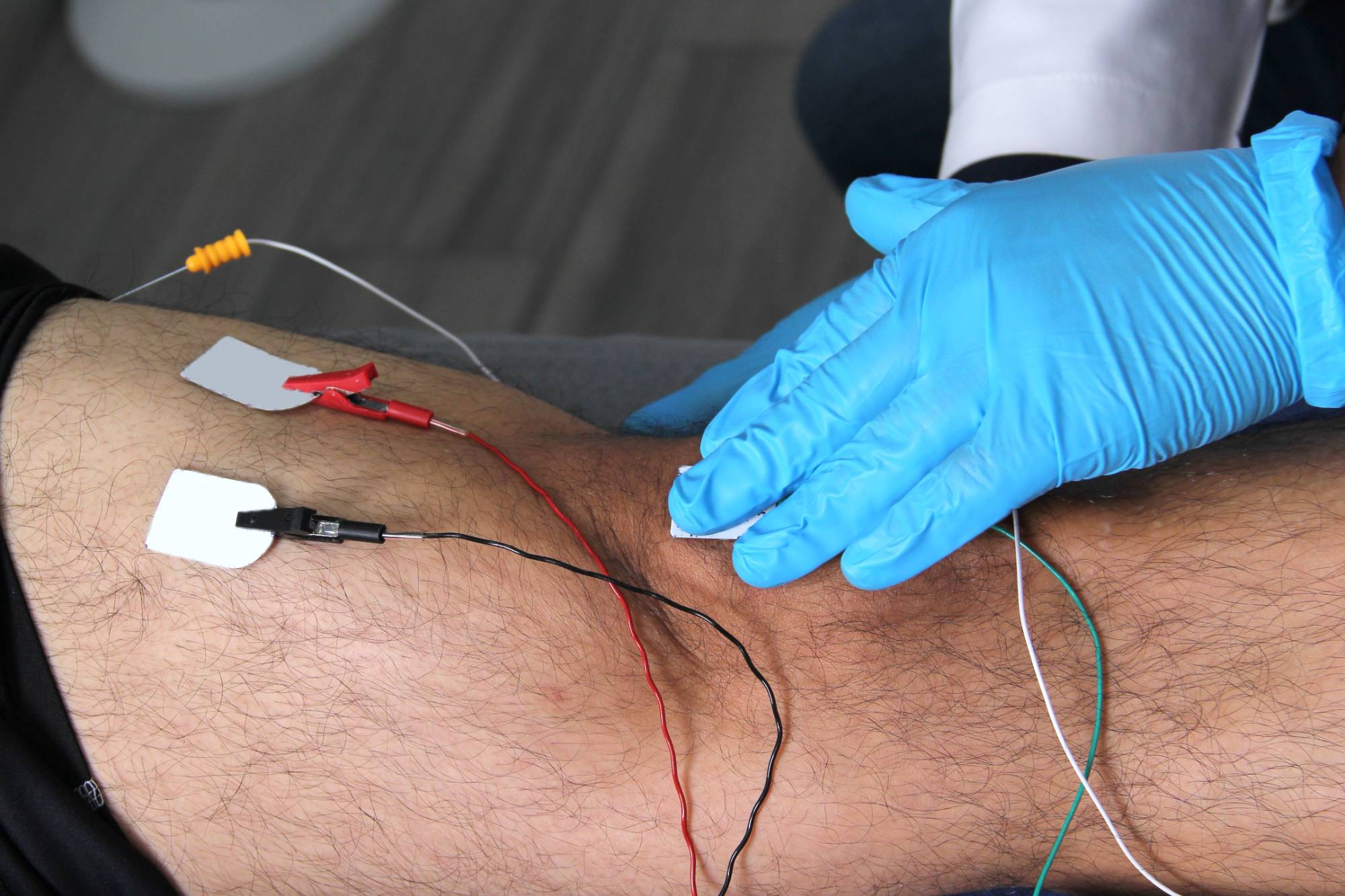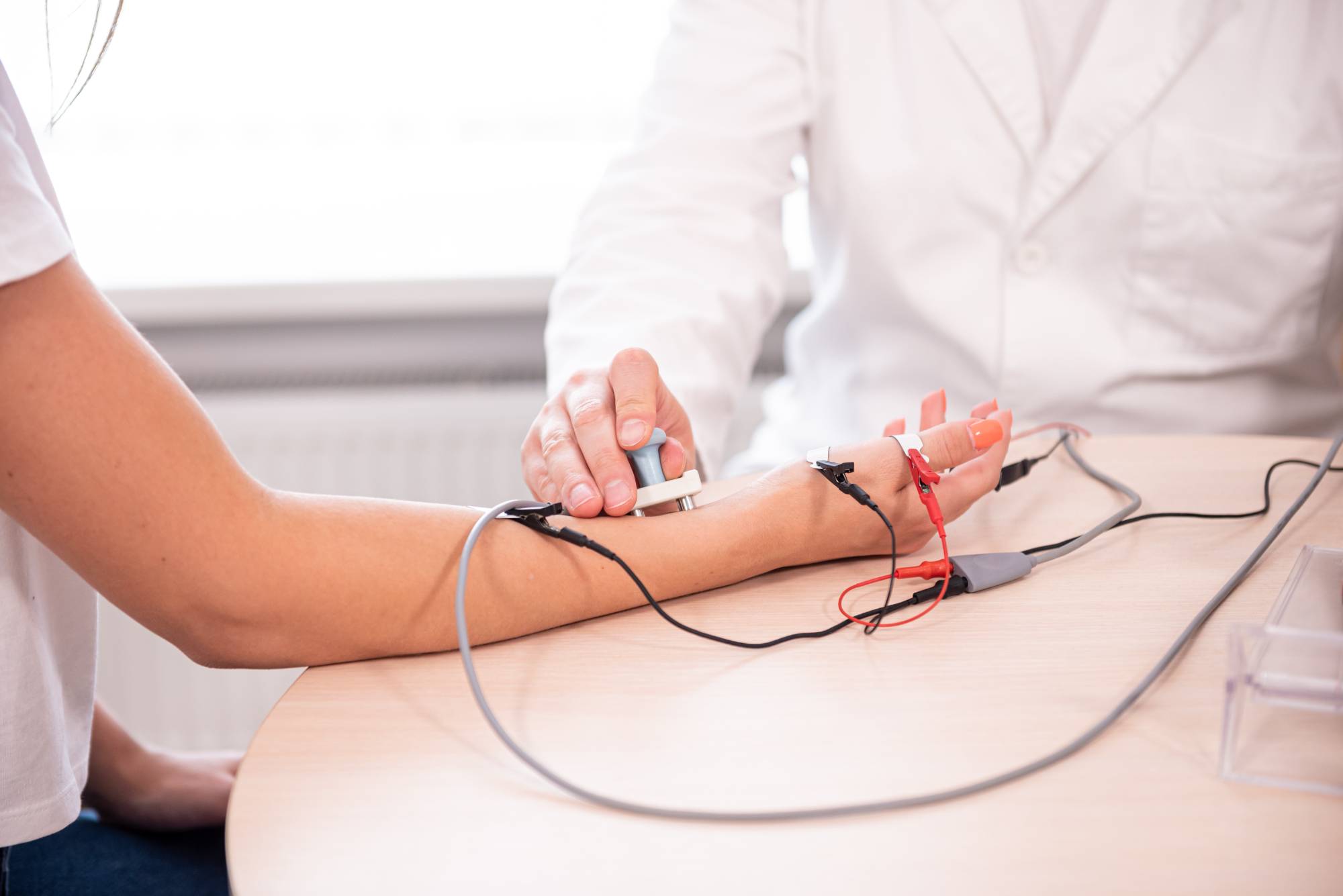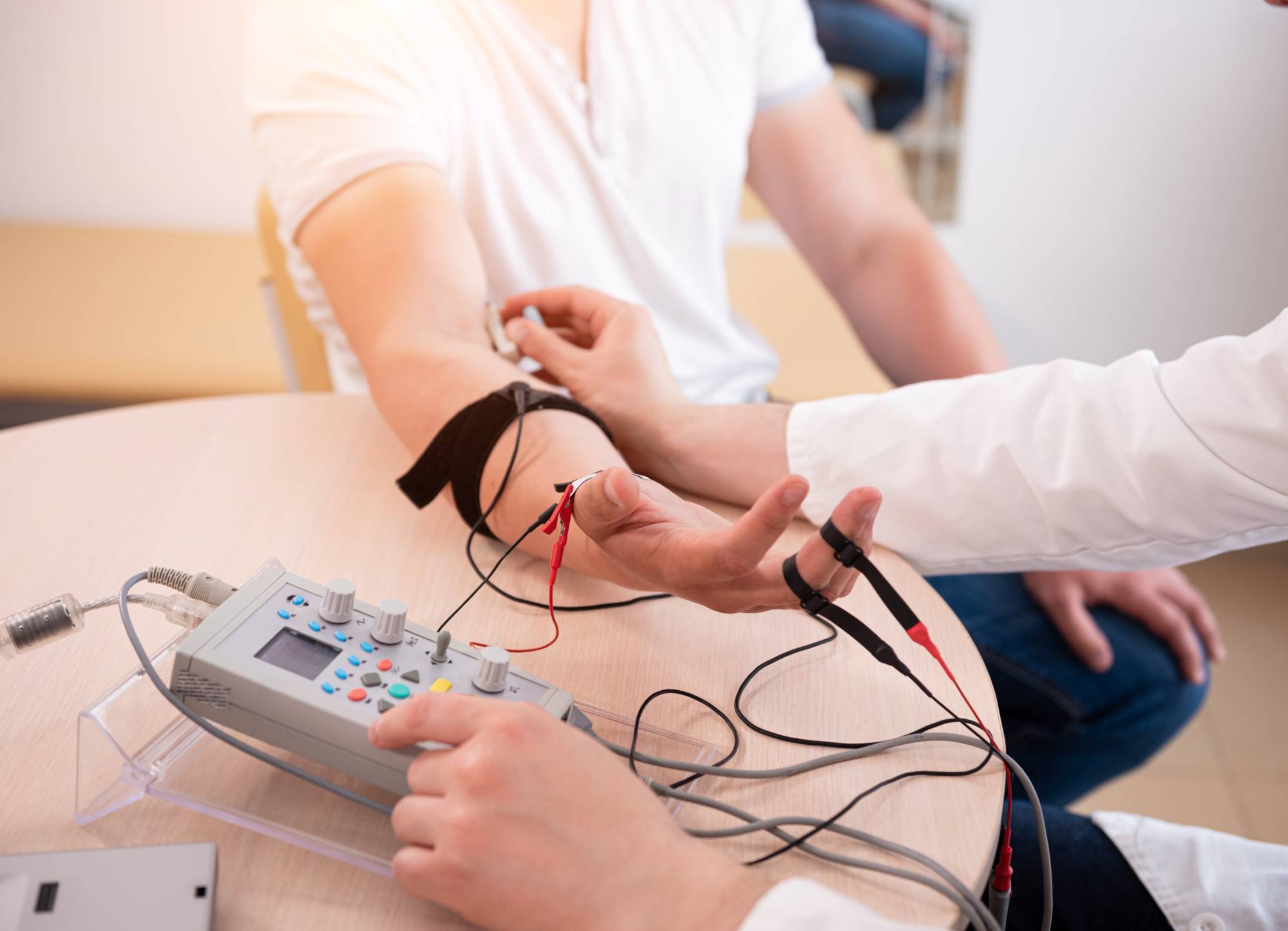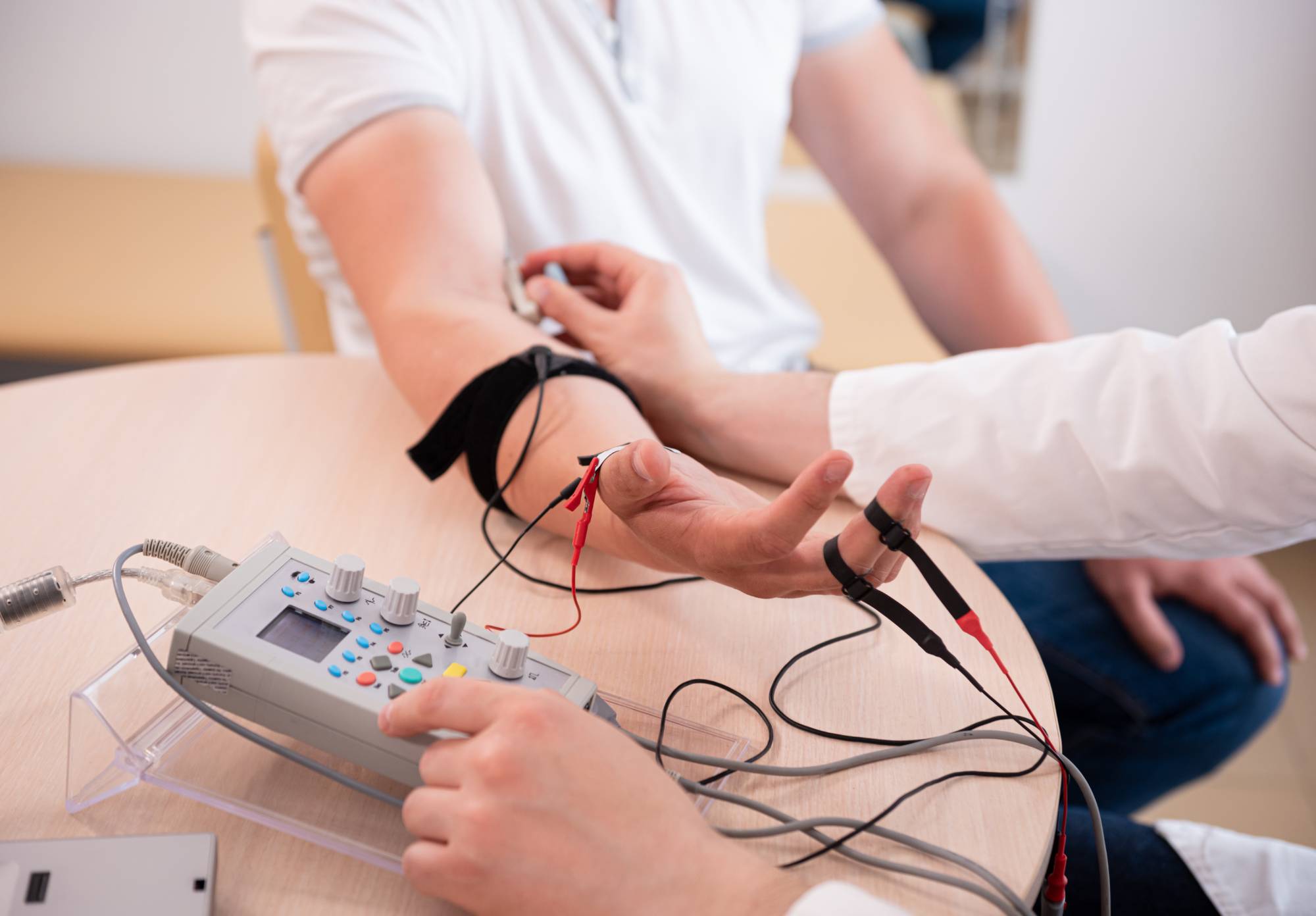Advanced electromyography testing that pinpoints exactly what’s causing your muscle weakness, numbness, or tingling.

Reviews

You’ve been dealing with unexplained muscle weakness, strange tingling, or that nagging numbness for too long. Your regular doctor says “let’s wait and see” but you need real answers now.
EMG testing gives you those answers. This precise diagnostic tool measures the electrical activity in your muscles and nerves, revealing exactly where the problem lies. Whether it’s carpal tunnel syndrome, a pinched nerve in your spine, or something more complex, you’ll walk out knowing what you’re dealing with.
No more guessing. No more wondering if it’s serious. Just clear, actionable information that leads to the right treatment plan for your specific condition.
We’ve been serving the Bath Beach community with specialized diagnostic and treatment services for years. Our board-certified physicians focus exclusively on spine and nerve conditions, which means we’ve seen your symptoms before and know exactly what to look for.
We’re not a general practice trying to handle everything. We’re specialists who understand the complexities of nerve and muscle disorders. Our team uses the most advanced EMG equipment available, and more importantly, we know how to interpret the results in ways that make sense for your specific situation.
You deserve doctors who take your symptoms seriously and have the expertise to get to the bottom of what’s happening.

The EMG test happens in two parts, and the whole process typically takes 30-60 minutes. First, we perform nerve conduction studies by placing small electrodes on your skin and sending mild electrical pulses to measure how well your nerves transmit signals. Most patients describe this as feeling like small static shocks.
Next comes the electromyography portion, where we insert very thin needle electrodes into specific muscles to measure their electrical activity. The needles are much thinner than those used for blood draws, and while there’s some discomfort, it’s brief and manageable.
Throughout the test, we’re monitoring your comfort level and explaining what we’re finding. You’ll get your results the same day, along with a clear explanation of what they mean and what your next steps should be.

Ready to get started?
Your EMG testing includes both electromyography and nerve conduction studies in one appointment. We test the specific areas related to your symptoms, whether that’s your arms, legs, back, or neck. The comprehensive evaluation covers motor nerves, sensory nerves, and muscle function.
You’ll receive detailed results that identify the exact location and severity of any nerve damage or muscle dysfunction. We test for common conditions like carpal tunnel syndrome, ulnar neuropathy, radiculopathy, and various muscle disorders. Our equipment can detect even subtle abnormalities that might be missed with less sophisticated testing.
Most insurance plans cover EMG testing when medically necessary, and we handle all the prior authorization paperwork. You’ll also get a written report that you can share with your referring physician or other specialists involved in your care.

New York:
Florida:
Support